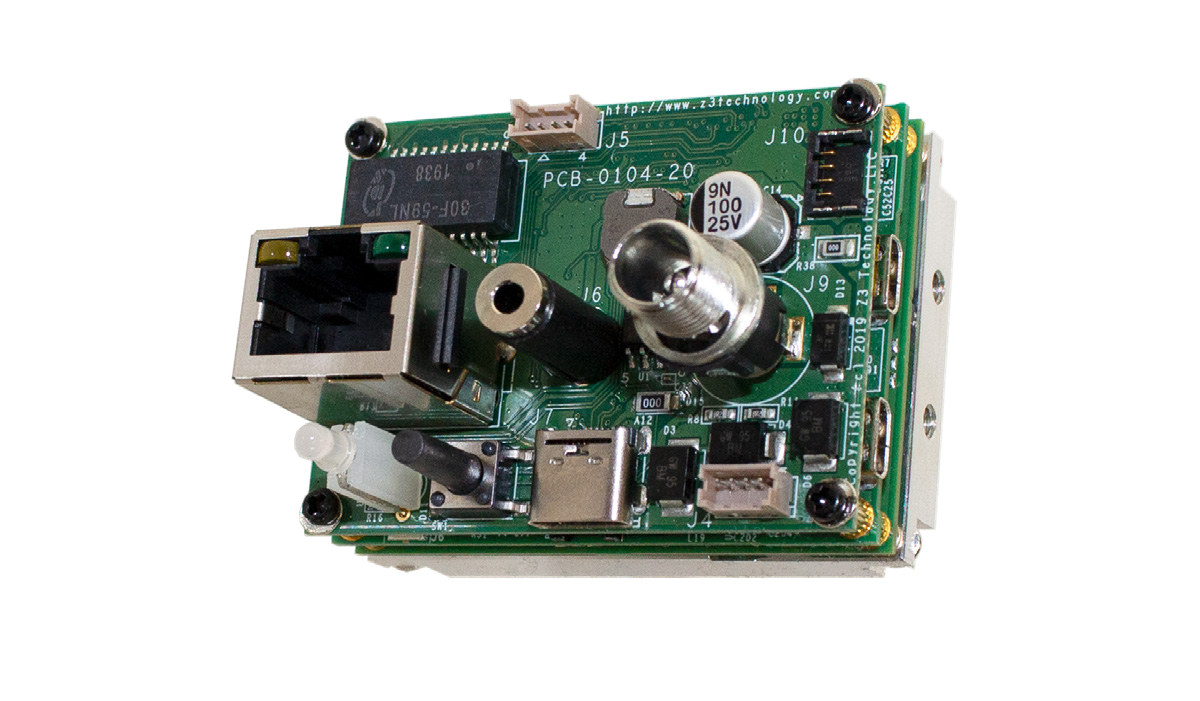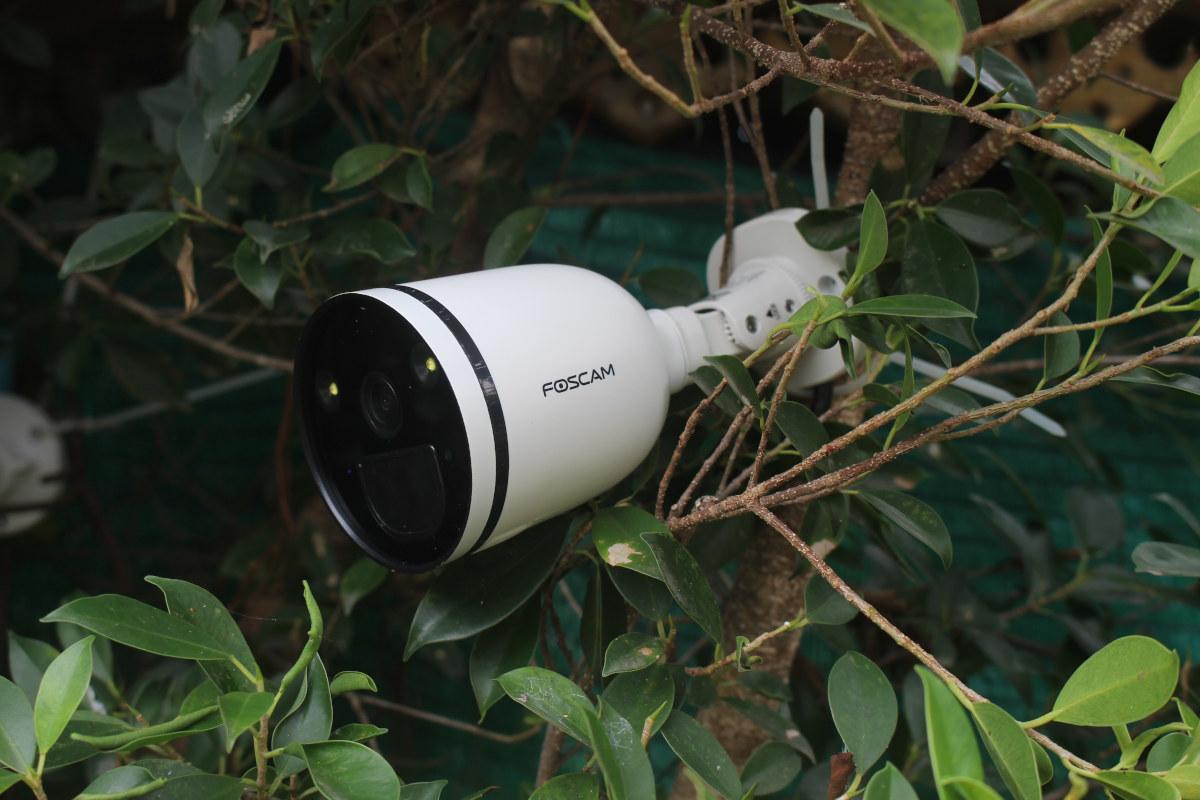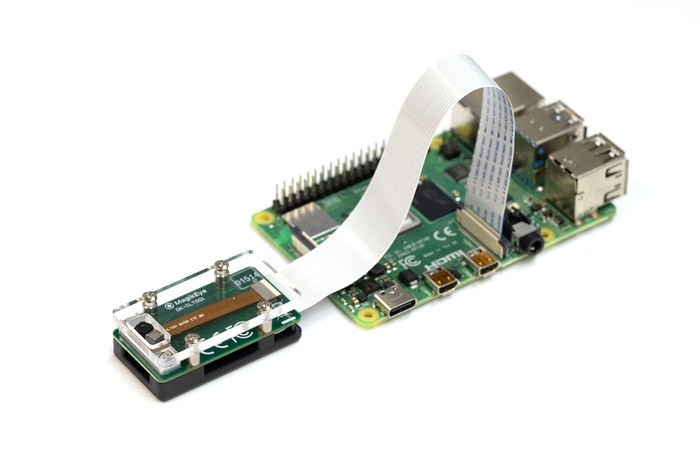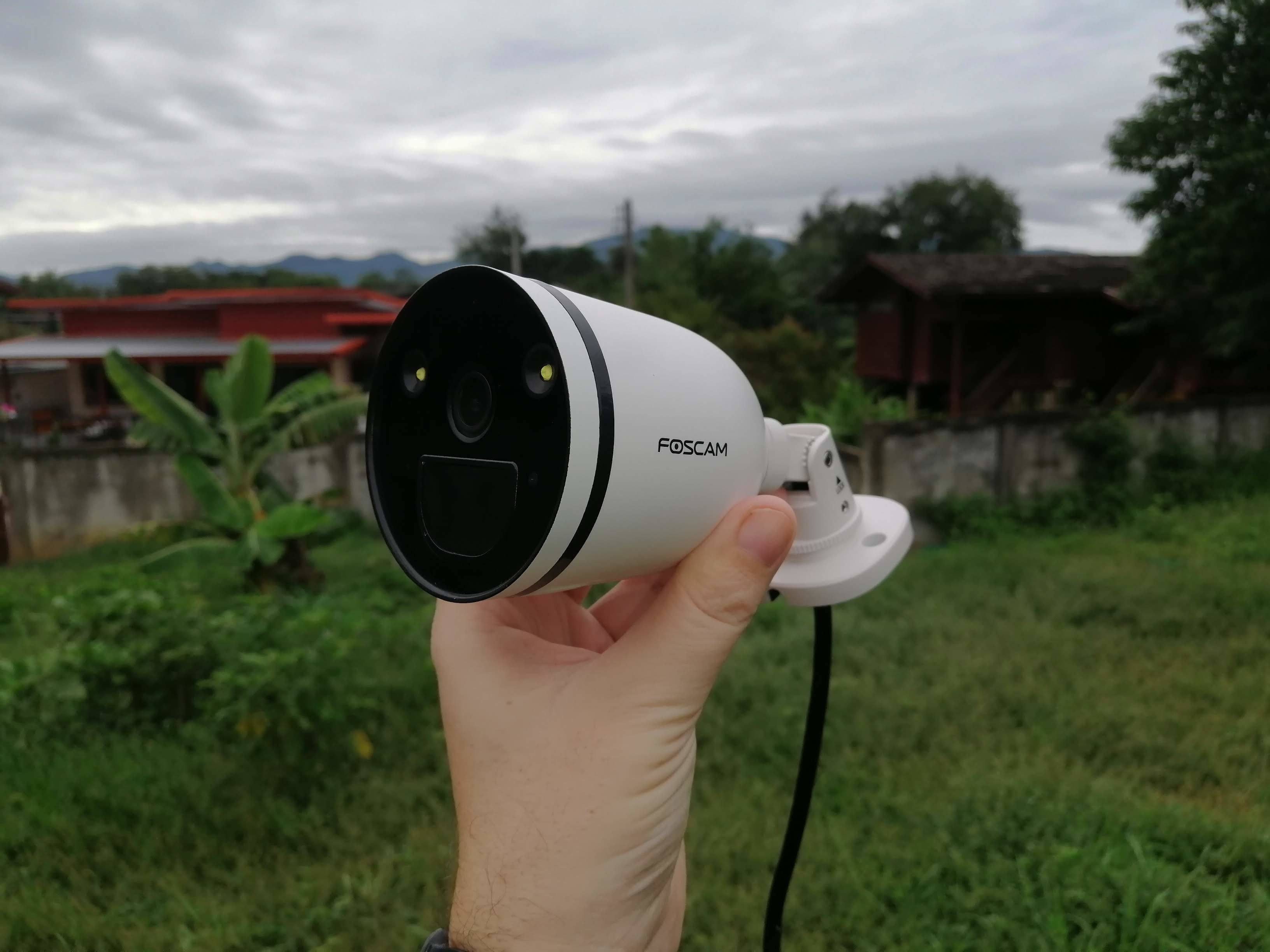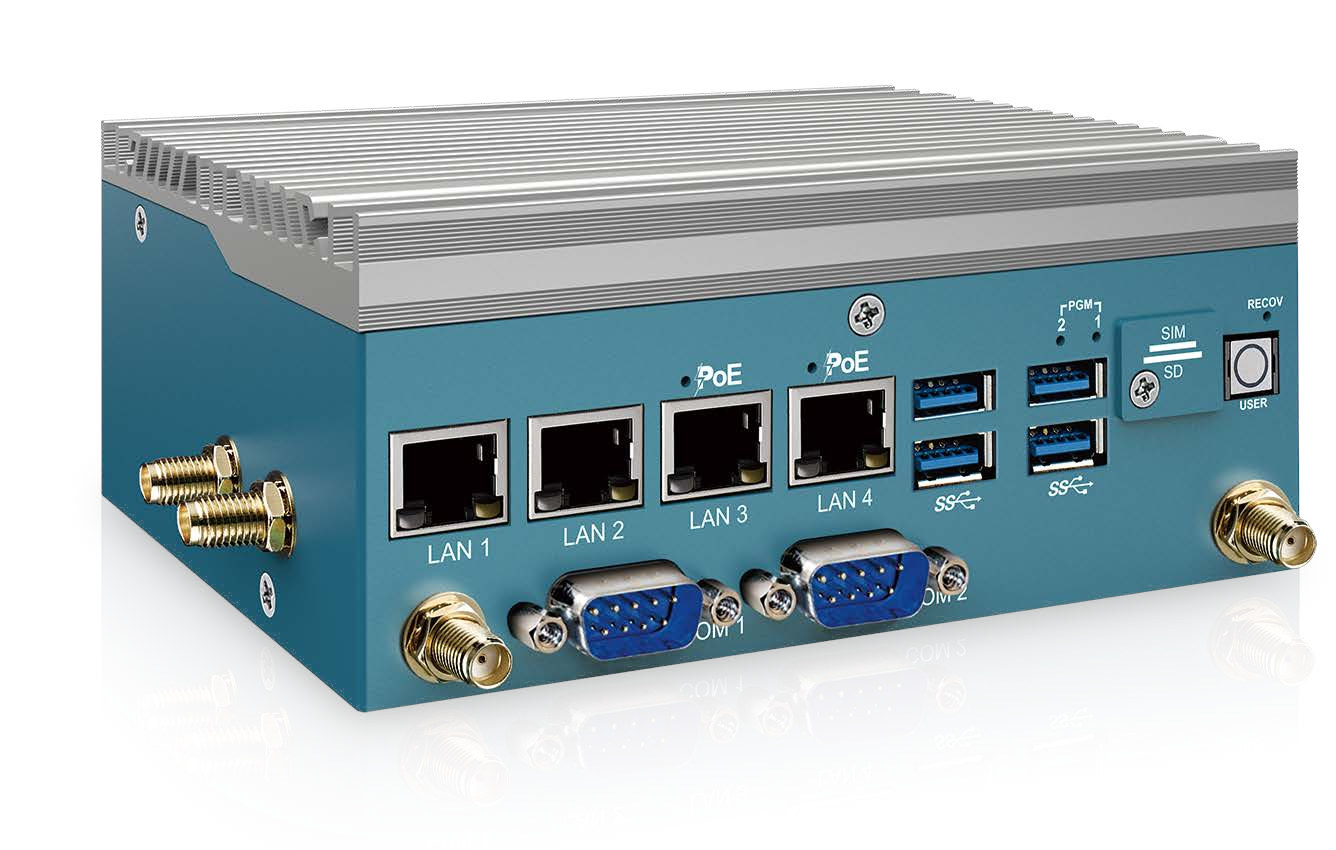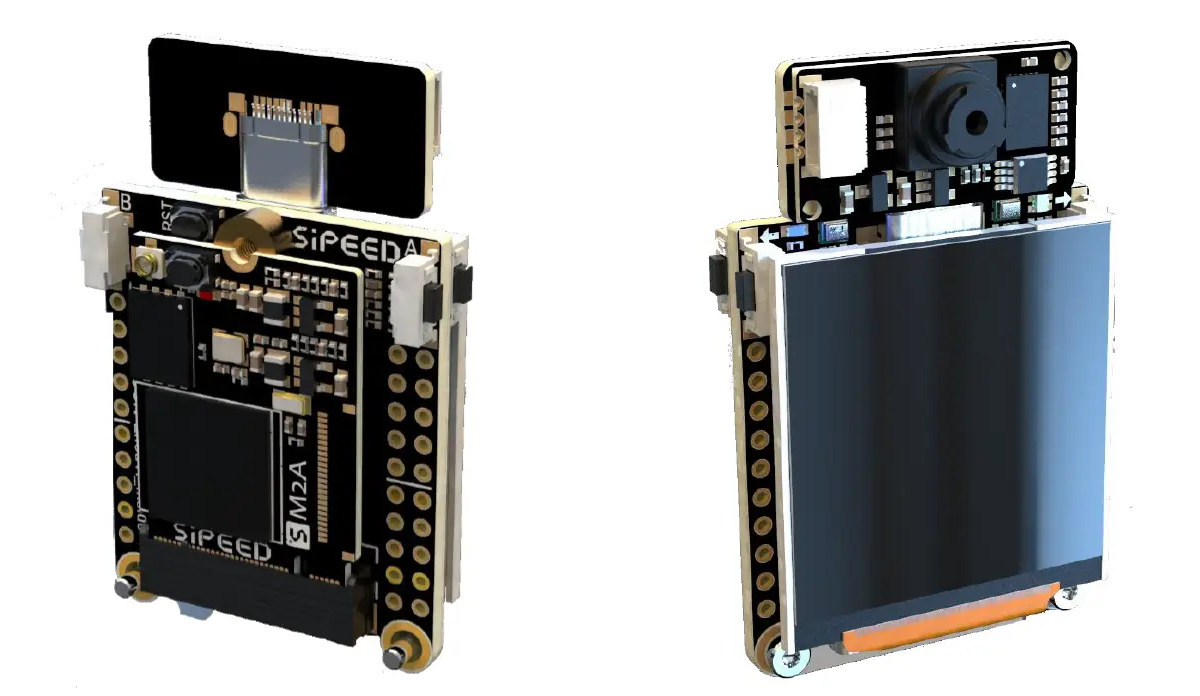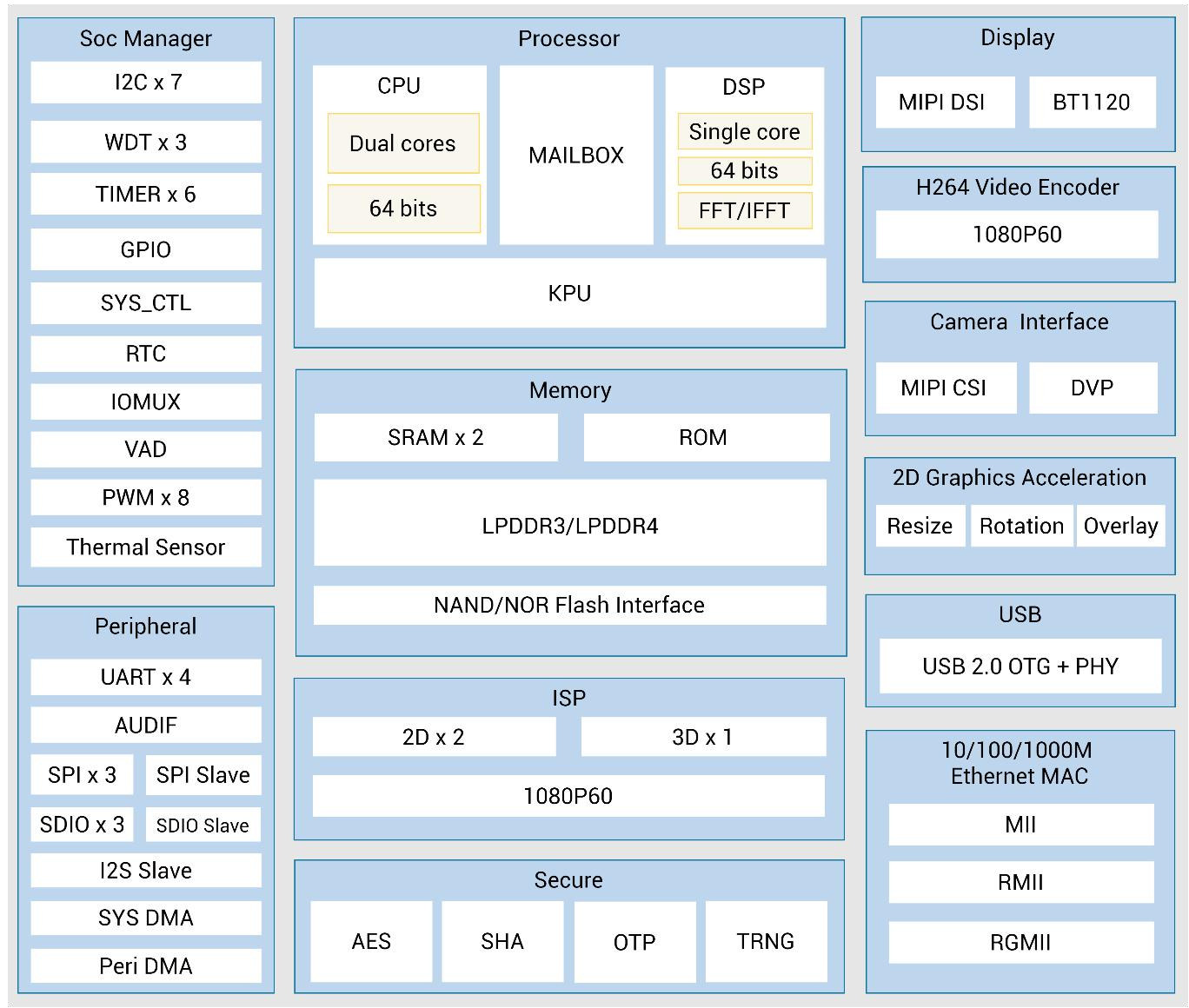US-based Z3 Technology has announced the Z3-Q603-RPS, a compact H.265 video encoder system capable of supporting 4K and HD resolutions for embedded, medical, and even military camera applications through NDAA (National Defense Authorisation Act) compliance. The board runs Linux on Qualcomm QCS603 IoT processor for AI and computer vision applications, which we previously found in Microsoft’s Vision AI Developer Kit, supports Ethernet and WiFI 5 connectivity, as well as features such as PTZ (Pan Tilt Zoom). Z3-Q603-RPS H.264 & H.265 video encoder system is comprised of an application board and a module with the following specifications: SoC – Qualcomm QCS603 (aka Qualcomm Vision Intelligence 300 Platform) with four Armv8 cores (2x 1.6GHz Kryo 300 Gold cores, 2x 1.7GHz Qualcomm Kryo 300 Silver cores ), Snapdragon neural processing engine, Adreno 615 GPU at 780 MHz System Memory – TBD Storage – NAND flash (capacity TBD) , MicroSD card socket Video Output […]
Foscam SPC review – Part 2: Human detection, Android app, ONVIF support
In the first part of Foscam SPC WiFi spotlight camera review, we checked out the specifications, the package content, and some of the main components of the camera with SigmaStar SSC337DE processor and a Realtek RTL8822CS dual-band WiFi 5 module. I’ve now had time to play with the camera and tested it with the Foscam Android app, including human detection, and enabled ONVIF support to use the camera with compatible third-party apps or programs. Foscam SPC installation and setup with Android app Foscam SPC camera is designed to be wall-mounted, but for this review, I simply attached it to the branch of a small tree. Note that contrary to the other cameras I’ve tested, the camera angle can only be adjusted up and down or rotated, but there’s no direct left or right adjustment. I’ve also connected the power adapter to power up the camera, but I did not install […]
MagikEye Developer Kit enables 120 fps 3D sensing on Raspberry Pi
MagikEye ILT001 developer kit (DK-ILT001) is a low-latency 3D sensing kit that connects to the Raspberry Pi’s MIPI CSI camera connector and features the company’s Invertible Light Technology (ILT) module with an infrared laser and a CMOS image sensor. The company says a “unique algorithm” developed in-house can generate 3D point cloud datasets acquired at high speeds (up to 120 fps) and with very low latency using simple hardware configuration. The kit targets researchers, students, and hobbyists working on machine vision, robotics, automated carriers, and other projects that can benefit from low-latency 3D sensing. MagikEye DK-ILT001 kit key features and specifications 850nm infrared light laser CMOS image sensor Range up to 1.5 meters (15 to 80 cm recommended) Compatibility – Raspberry Pi Zero W/3B/3B+/4 Power Supply – 3.3V (via MIPI Interface on Raspberry Pi) Power Consumption – 0.6W (average) Dimensions – 44 x 24 x 16 mm (within enclosure) Weight […]
Foscam SPC WiFi Spotlight Camera Review – Part1: Unboxing and Teardown
I’ve been reviewing a few IP cameras with built-in AI features with Vacom Cam, Reolink RLC-810A, and Annke CZ400 AI security camera which had by far the most advanced features going beyond human detection with luggage monitoring, line crossing-detection, and many more. Today, I’ve received another model with basic human detection. But Foscam SPC security camera also happens to come with a motion-activated spotlight, and it is the first camera I’ve ever received with support for dual-band WiFi meaning 2.4GHz or 5 GHz WiFi can be used as needed. In the first part of the review, I’ll go through the specs, do an unboxing, and go through teardown photos to check the internals. Foscam SPC key features and specifications Some of the highlights listed in the user manual and package: Camera 4MP camera up to 2560×1440 resolution @ 25 fps, 156° view of view (diagonal) HDR support 2x white LED […]
Vecow EAC-2000 fanless embedded system is powered by NVIDIA Jetson Xavier NX
Vecow Vecow EAC-2000 series fanless embedded system features NVIDIA Jetson Xavier NX module for the deployment of AI vision and industrial applications including traffic vision, intelligent surveillance, auto optical inspection, Smart Factory, AMR/AGV, and other AIoT/Industry 4.0 applications. The computer comes with up to four Fakra-Z connectors to connect GMSL cameras, as well as four Gigabit Ethernet ports, two of which with PoE+ support, takes 9V to 50V wide range DC input, and can operate in a wide temperature range from -25°C to 70°C. Two models part of Vecow EAC-2000 embedded system family are currently offered with the following specifications: System-on-Module – NVIDIA Jetson Xavier NX with CPU – 6-core NVIDIA Carmel ARM v8.2 64-bit CPU GPU -384-core NVIDIA Volta GPU with 48 Tensor Cores DL Accelerator -2x NVDLA Engines System Memory – 8GB LPDDR4x DRAM Storage – 16GB eMMC flash Storage – M.2 Key M Socket (2280) for SSD, […]
MAIX-II A AI camera board combines Allwinner R329 smart audio processor with USB-C camera
Earlier this year, we wrote about Sipeed MAIX-II Dock AIoT vision devkit with an Allwinner V831 camera processor with a small 200 MOPS NPU, an Omnivision SP2305 2MP camera sensor, and a 1.3-inch display. But for some reason, which could be supply issues, Sipeed has designed a much different variant called MAIX-II A with a board based on Allwinner R329 smart audio processor, a 720p30 USB camera module, and a 1.5-inch display. MAIX-II A board specifications: Main M.2 module – Maix-II A module with Allwinner R329 dual-core Cortex-A53 processor @ 1.5 GHz, 256MB DDR3 on-chip, a dual-core HIFI4 DSP @ 400 MHz, and Arm China AIPU AI accelerator for up to 256 MOPS, plus Wi-Fi & BLE and a footprint for an SPI Flash. Storage – MicroSD card socket Display – 1.5-inch LCD display with 240×240 resolution Audio – Dual microphones, 3W speakers Camera – 720p USB-C camera module based […]
XUAN-Bike self-balancing, self-riding bicycle relies on flywheel, 22 TOPS Huawei Ascend A310 AI processor
After Huawei engineer Peng Zhihui Jun fell off this bicycle, he decided he should create a self-balancing, self-riding bicycle, and ultimately this gave birth to the XUAN-Bike, with XUAN standing for eXtremely, Unnatural Auto-Navigation, and also happening to be an old Chinese name for cars. The bicycle relies on a flywheel and a control board with ESP32 and MPU6050 IMU for stabilization connected over a CAN bus to the motors, as well as Atlas 200 DK AI Developer Kit equipped with the 22 TOPS Huawei Ascend A310 AI processor consuming under 8W connected to a 3D depth camera and motor for self-riding. It’s not the first time we see this type of bicycle or even motorcycle, but the XUAN-Bike design is also fairly well-documented with the hardware design (electronics + 3D Fusion360 CAD files) and some documentation in Chinese uploaded to Github. The software part has not been released so […]
Kendryte K510 tri-core RISC-V AI processor deliver up to 3 TOPS
Kendryte K510 is a 64-bit tri-core RISC-V processor clocked at up to 800 MHz with AI accelerators that succeed the 400 MHz Kendryte K210 dual-core RISC-V AI processor released a few years ago first in Kendryte KD233 board, and then boards like Maxduino or Grove AI HAT conveniently programmable with Arduino or Micropython. Canaan formally announced the processor yesterday at the 2021 World Artificial Intelligence Conference claiming K510 had three times the performance of K210 making it suitable for UAV high-definition aerial photography, high-definition panoramic video conferences, robotics, STEAM education, driver assistance scenarios, and industrial and professional cameras. The press release did not have much information, but multiple sources provided additional details to CNX Software, so we have Kendryte K510 specifications: Processor – 2x 64-bit RISC-V processor @ 800 MHz, and 1x 64-bit RISC-V core @ 800 MHz with DSP extension AI subsystem with 3 TOPS in total KPU: General […]


